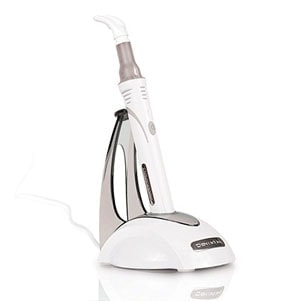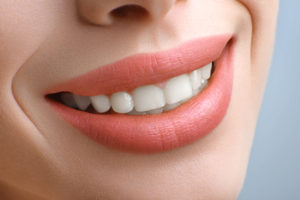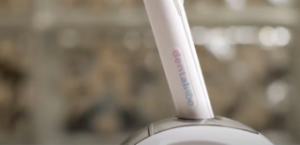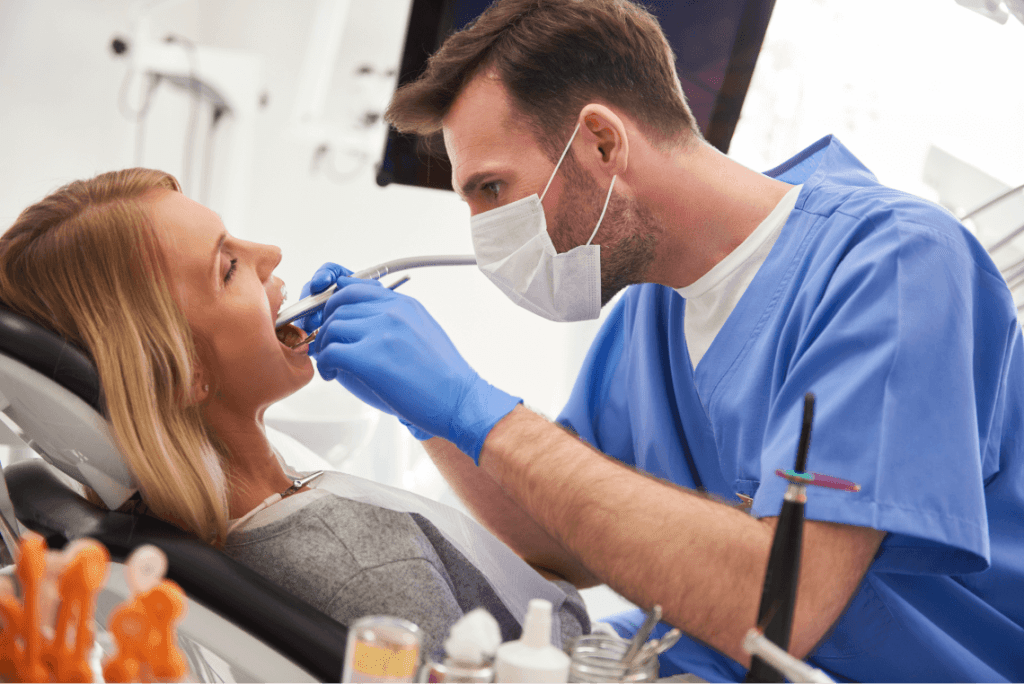There are few oral health issues that can be as painful or disruptive to daily life as impacted wisdom teeth. The pain of impacted wisdom teeth is often enough to let you know that something is wrong, but other symptoms can help you identify this common dental issue early, before complications become severe.
What are impacted wisdom teeth?
Wisdom teeth, also known as third molars, as the last teeth to grow in for adults. They typically begin to grow in between the ages of 17 and 25. Some people will never develop wisdom teeth, while others will have their wisdom teeth grow in without any issues. Many people, however, experience what is known as impacted wisdom teeth.
Impacted wisdom teeth refer to wisdom teeth that are stuck below the surface of the gums. This can happen when wisdom teeth don’t have enough room to grow in properly, or because they are growing in sideways.
How do you know if your wisdom teeth are impacted?
Impacted wisdom teeth can be detected early using a panelipse x-ray and can usually be identified by your dentist before they begin to cause debilitating pain. Keeping your regular dental appointments as instructed will allow your dentist to monitor the progress of your wisdom teeth and recommend removal before problems begin to occur.
If your wisdom teeth do become impacted, you will likely notice a few symptoms that will worsen as the condition continues to develop.
Common symptoms of impacted wisdom teeth
1. Throbbing pain in the back of the mouth
When wisdom teeth become impacted, it causes a great deal of pain, particularly as the teeth continue to erupt. You may notice pain radiating from the back of the mouth, especially in the area around the wisdom teeth and other molars. This pain will get worse as the emerging wisdom teeth push on the other molars, causing the surrounding teeth to become crowded.
2. Swollen, tender and bleeding gums
Impacted wisdom teeth can cause serious gum issues. The gums may become swollen and tender to the touch. They may start to bleed when pressure is applied, making flossing and brushing both painful and difficult. If you notice your gums in the back of the mouth becoming swollen and tender, it may very well be impacted wisdom teeth. Other forms of gum disease can cause the same symptoms, so it’s important that you see your dentist immediately for a proper diagnosis.
3. Swelling around the jaw
Impacted wisdom teeth are often accompanied by swelling of both the gums and jaw. This swelling can be subtle at first, but can worsen quickly to the point that it becomes painful or difficult to open your mouth.
4. Swollen glands in the shoulder and neck
Impacted wisdom teeth are often accompanied by swollen glands in the shoulder and neck. When combined with other symptoms, this is a sure sign that you might be experiencing impacted wisdom teeth and should speak to your dentist right away.
5. Headaches
Impacted wisdom teeth can cause pain in the temporomandibular joint, which connects the jaw and skull. This pain may radiate to other areas of the head and face as well.
What happens if you don’t remove impacted wisdom teeth?
Impacted wisdom teeth can cause a range of further complications as the condition worsens. While impacted wisdom teeth themselves can be enough to cause serious pain, the real threat comes from the complications that can arise as a result, which can include:
- Damage and misalignment of adjacent teeth. Impacted wisdom teeth can push on the teeth around them, causing infection or forcing the teeth out of place.
- Gum disease. Because Impacted wisdom teeth are difficult to brush or floss, they are prone to infection and decay. This can cause serious issues in the mouth. When wisdom teeth are only partially erupted or misaligned, it becomes easy for food and bacteria to become trapped, leading to further gum disease and tooth decay.
- Cysts. Wisdom teeth grow within a sac that is located in the interior of the jaw. These sacs can fill with fluid when wisdom teeth become impacted. This can lead to cysts that can damage nerves, cause pain, and cause damage to adjacent teeth.
How do they remove impacted wisdom teeth?
Removal of impacted wisdom teeth typically requires a surgical procedure, which is performed by an oral surgeon. The oral surgeon will typically numb the area with a local anesthetic, and may also suggest using sedation so that you will be asleep during the procedure.
The surgeon will then make an incision in the gum tissue to expose the impacted tooth and the root, so that the tooth can be removed. In some cases, small pieces of the jaw bone may also need to be removed if there is bone blocking access to the tooth.
Once the tooth and root are removed, the gums are then closed with stitches. You may need to return at a later date to have the stitches removed, or your doctor may use stitches that dissolve on their own.
How long does it take to recover from impacted wisdom teeth removal?
After wisdom teeth removal, most people will experience some pain and swelling for a few days. Follow your doctor’s instructions on what to eat and how to manage the pain. Your doctor may also recommend that you refrain from strenuous activities for several days. Most people can return to work or school the next day.
Call your doctor’s office if you experience severe pain, excessive bleeding, difficulty swallowing, fever, or other unusual symptoms.
If you are experiencing one or more of these warning signs and fear that you may have impacted wisdom teeth, you should contact your dentist right away. If you need dental care, consider finding a dentist who uses DentalVibe Injection Comfort System. DentalVibe technology allows dentists to provide their patients with pain-free injections to make their dental procedures more comfortable and relieve their dental anxiety.
















